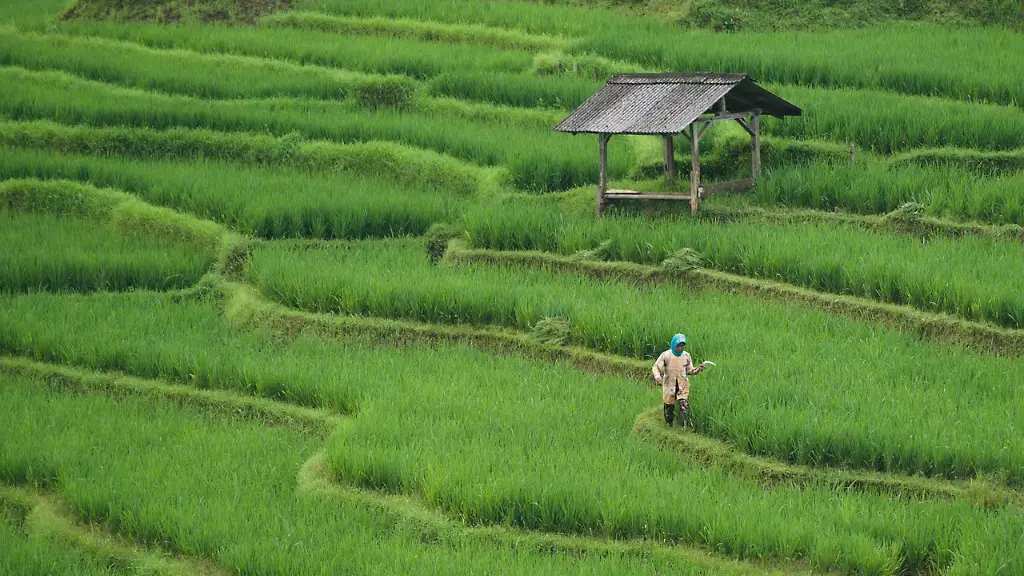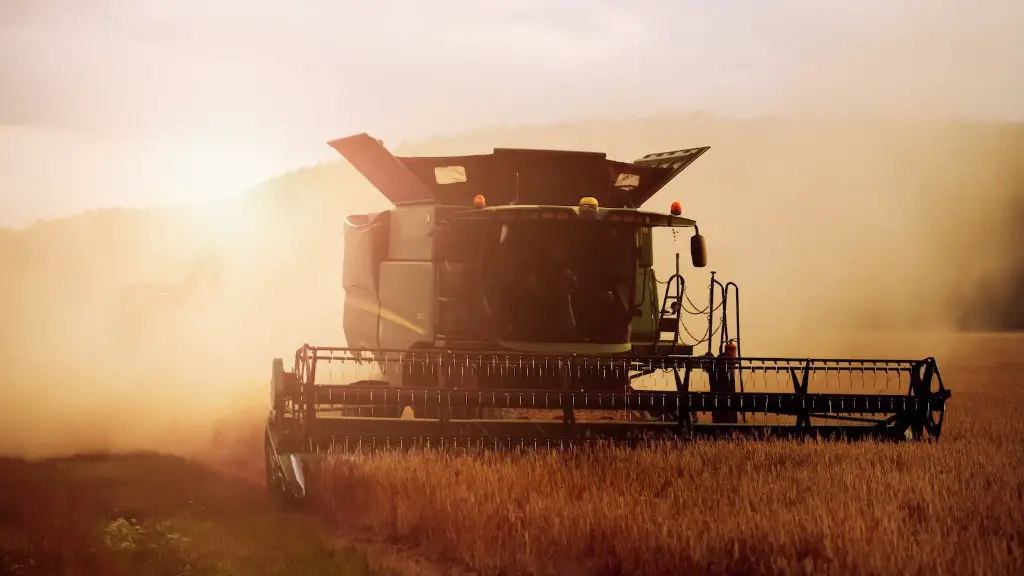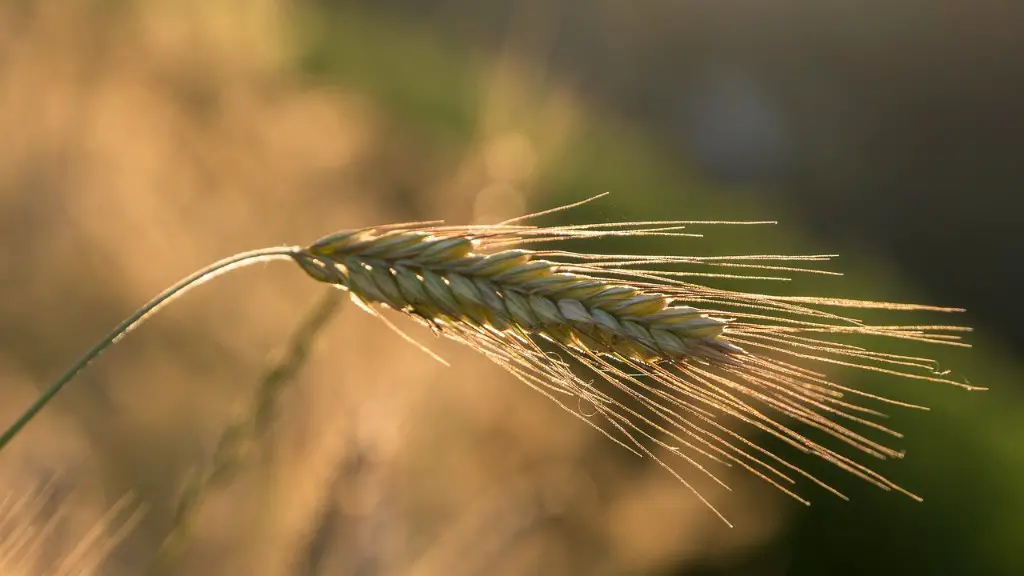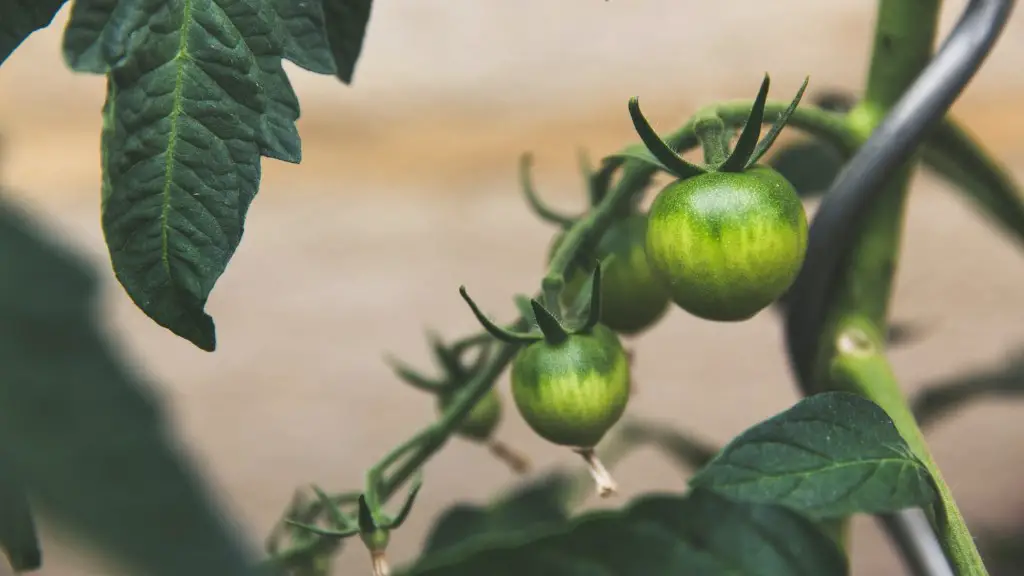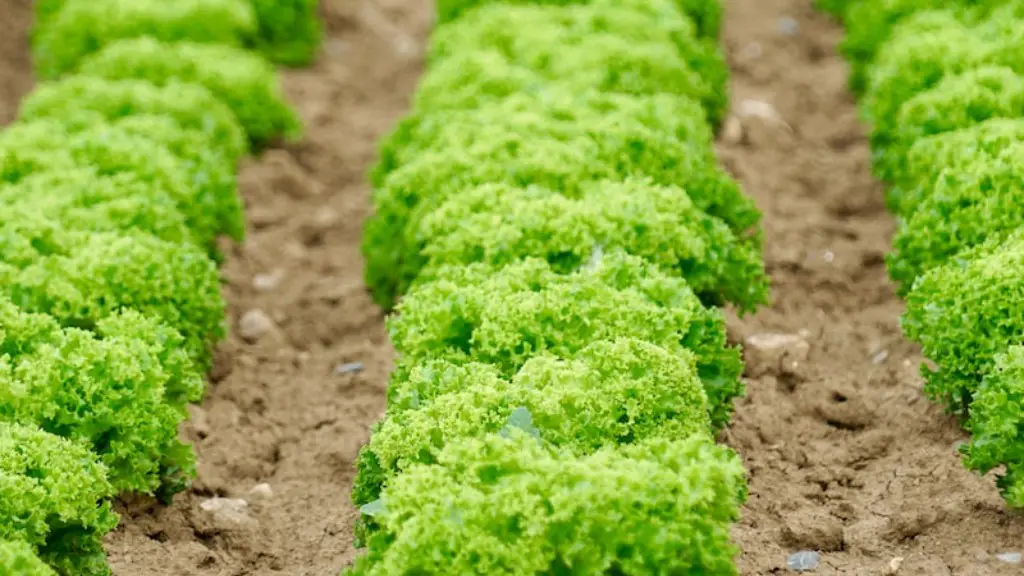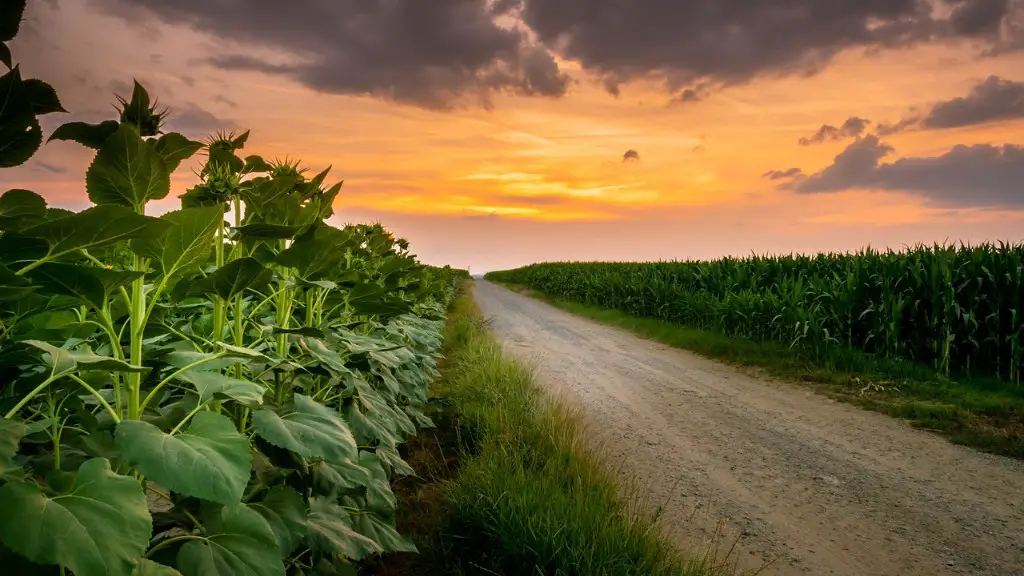Florida is home to a diverse array of traditional and modern agricultural activities. Agriculture in Florida is important to the state, both economically and socially, and it all begins with the individuals who are actively engaged in the sector. Farmers and ranchers produce a variety of crops and livestock, and the state is known for its orange, grapefruit, and tangerine crops.
Agricultural commodities in Florida include citrus fruits, beef cattle, tomatoes, sugarcane, and dairy products. Additionally, nursery and floriculture products account for a large portion of the state’s agricultural production. Florida is widely recognized for its successful aquaculture sector, and is a major producer of cultured ornamental fish.
Agriculture in the Sunshine State relies on a supportive external environment, including access to markets and resources. The state’s agricultural producers work closely with the University of Florida and its Institute of Food and Agricultural Sciences to stay abreast of new technologies, research, and regulatory and environmental issues.
Florida also has a robust agricultural research, marketing, and education system that allows farmers and ranchers to respond to economic and environmental issues. The state’s marketing and education efforts are overseen by the Florida Department of Agriculture and Consumer Services.
Organizations such as the Florida Farm Bureau and the Florida Fruit and Vegetable Association have advocated for the interests of the state’s agricultural communities since 1935. These organizations work to promote and educate farmers of all sizes, support research, and implement programs that are beneficial to their members and the agricultural community as a whole.
The Florida Farm Credit System, which was established in 1927, provides important financial services to farmers and ranchers throughout the state. Through the Farm Credit System, qualified borrowers can access low-interest financing, educational and advisory services, and other services to help them stay competitive.
Agriculture in Florida has always pushed the boundaries of innovation, and as the state looks to the future, it will continue to offer new opportunities for the next generation of farmers and ranchers. Whether it’s preserving traditional ways of raising and growing crops and livestock, or utilizing new techniques, agriculture in Florida remains an important part of the economy and culture.
Aquaculture in Florida
Aquaculture is an integral part of the agricultural industry in Florida. The state is home to over 1,100 species of aquatic life, and is a leader in the production of mariculture, aquaculture, and fisheries resources. Aquaculture in the Sunshine State is divided into two categories – cultivated species and secondary species.
Cultivated species include oysters, finfish, crustaceans, and aquatic plants, while secondary species include recreationally-harvested species like stone crab and spiny lobster. Florida leads the nation in freshwater aquaculture production, while the state’s marine aquaculture industry is second only to Hawaii. Additionally, the state is home to the National Marine Fisheries Service, which produces essential data to support aquaculture in Florida.
Shrimp, crustacean, mollusk, and finfish farming are all vital to the state’s aquaculture industry, and each has its own specific needs and regulations. The Florida Department of Agriculture and Consumer Services, in partnership with the University of Florida, has implemented industry specific best management practices in order to ensure that aquaculture operations in the state can thrive.
In addition to traditional aquaculture operations, Florida also has a vibrant emerging aquaculture sector. Aquaponics, or using fish waste to fertilize and grow crops, is becoming increasingly popular in the Sunshine State. The University of Florida is at the forefront of aquaponics research and educational efforts.
As the demand for fish and seafood across the world continues to increase, Florida will be well positioned to meet those needs. Aquaculture in Florida will continue to be an important part of the state’s agricultural industry, providing a sustainable source of food and income.
Organic Agriculture in Florida
Organic agriculture continues to gain traction in Florida with the rise of health-conscious consumers. Florida was one of the first states in the nation to create an official organic certification program, which is managed by the Florida Department of Agriculture and Consumer Services.
Organic agricultural production in Florida is growing quickly, with increasing numbers of farmers and customers seeking to include organic products in their diets. Certified organic growers in the state must comply with federal regulations and the standards set forth by the National Organic Program.
Organic agriculture in the Sunshine State follows the same principles as traditional agriculture, such as conservation of natural resources, protection of the environment and promotion of biodiversity. Additionally, a key benefit of organic farming is the reduced use of synthetic and chemically based inputs. Organic farming also has significant benefits for the environment, and it can potentially improve the soil and water quality of a region.
Organic agriculture is still an emerging sector in Florida, but it will likely continue to gain popularity in the future. The widespread availability of organic products, along with advances in environmental protection, should help support the growth of this sector in the years to come.
Agri-Tourism & Education in Florida
Florida is not only home to an abundance of traditional agricultural activities, but also a variety of agri-tourism and educational initiatives. Agri-tourism invites locals and visitors alike to explore the agricultural sector of the state. Major attractions range from pick-your-own berry farms to agricultural theme parks.
Despite the changing landscapes of urbanization, the Sunshine State still offers some of the best agricultural experiences for those looking to immerse themselves in the culture of Florida. Several organizations in the state offer agricultural-based tourism experiences, including the Florida Farm Bureau, Florida State Parks, and the Florida Department of Agriculture and Consumer Services.
Agriculture education is also an important component of Florida’s agricultural sector. The University of Florida, housed in Gainesville, offers an impressive range of agricultural and scientific research. In addition, the state has many elementary and secondary schools that have agricultural education programs.
Agri-tourism and education initiatives in Florida provide a unique opportunity for individuals of all ages to experience agriculture in the Sunshine State. From educational opportunities to pick-your-own berry farms, Florida will continue to provide a wide range of experiences for those interested in agricultural activities.
Farm Safety & Regulatory Issues in Florida
As with any business, agricultural operations have to follow federal, state, and local laws and regulations. In Florida, the Florida Department of Agriculture and Consumer Services is responsible for overseeing and enforcing farm safety regulations.
The department is responsible for developing, monitoring, and enforcing safety regulations for all agricultural operations in the state. The department ensures that farmers and ranchers comply with the applicable regulations, while also providing educational programs to help farmers stay abreast of changing regulations.
The safety of agricultural workers is of utmost importance in Florida. The state is home to a number of organizations that seek to provide farmworkers with safe and healthy working environments. These include the United Farm Workers of America, the Farmworker Association of Florida, and the Florida Farmworkers Health and Safety Institute.
Farmers in the state are also required to comply with a variety of other regulations, including those related to pesticide use, animal welfare, and water quality. The state’s agricultural producers work closely with the University of Florida and the Florida Department of Agriculture and Consumer Services in order to ensure that they remain in compliance with all applicable regulations.
Agricultural safety and regulatory issues will continue to be an important part of the state’s agricultural sector. It is essential that farmers and ranchers stay abreast of new developments in order to ensure the safety of their workers and maintain compliance with all applicable regulations.
Agricultural Technologies & Trade In Florida
In recent years, agricultural technologies and trade in Florida have become increasingly important components of the state’s agricultural sector. Florida agricultural technologies are typically divided into two categories – traditional and modern technologies. Traditional technologies include plowing and hand tools, while modern technologies are more heavily reliant on computers and robotics.
Modern technologies serve a variety of purposes in the agricultural sector, ranging from soil and water management to harvesting efficiency. Computer-assisted precision farming techniques are being used in Florida to improve yield, reduce labor costs, and conserve resources. Additionally, robotics and automated equipment are being used to help reduce the risks associated with hazardous agricultural jobs.
Florida’s agricultural sector is increasingly dependent on international trade. The state is home to a number of seaports, airports, and access points that allow for the easy import and export of agricultural goods. Trade with the Caribbean, Central America, and South America is especially important to the state’s agricultural sector, and Florida is well positioned to serve these markets going forward.
Agricultural trade and technology will continue to be important components of Florida’s agricultural industry. With the right investments and policies, Florida’s agricultural sector will continue to benefit from modern technologies and international markets.
